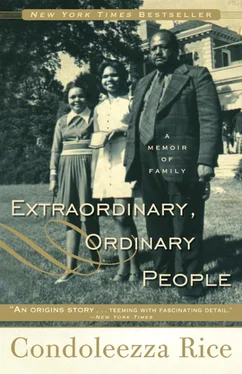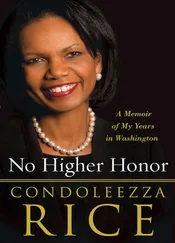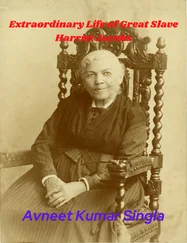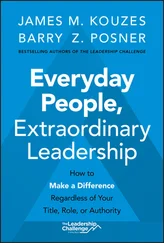This was especially important when Gee abruptly left Spelman College in Atlanta without informing her parents. Gee, it seems, had decided to go to New York, where she planned to marry an Irish boy named Andy she had met there. Granddaddy Ray boarded a train and brought her back to Birmingham. My father, sensing that Gee could not at that moment live at home, arranged for her to go to Norfolk, Virginia, and live with his sister and mother. She attended and graduated from Norfolk State University, where Aunt Theresa was a faculty member. Gee became a teacher and later principal at a school for children with special needs.
Daddy was also very close to Mother’s brother Alto. He was unable to convince Alto to play football—Alto said that being hit once was enough for him—but the two became like brothers. Alto was incredibly handsome, with dark, wavy hair and an athletic build. As Gee would later do, he started college but soon quit. He joined the army, where he used his extraordinary talents as a trumpeter to play in the band throughout Europe and admittedly avoid the hard work of infantry duty.
That wasn’t good enough for my grandfather, who was determined to see every one of his children get a college education. After selling insurance for a while, Alto was shipped off to Southern University in Baton Rouge, Louisiana. Alto finished college and, like most of the Rays, became a teacher.
Thus, like most of their middle-class peers in segregated Birmingham, John and Angelena managed to live full and productive lives. Segregation provided in some ways a kind of buffer in which they could, for the most part, control their environment. Like their friends and neighbors, my parents kept their distance from the white world and created a relatively placid cocoon of family, church, community, and school.
But when my parents did have to venture outside of their narrow world, shocking things happened. My uncle tells the story of the night that my father drove him back to college in Louisiana after a holiday at home. Their car broke down on a dark back road. That was in the days when a sign at the Louisiana border was said to have read, “Run, nigger, run! If you don’t know how to read, run anyway.” A highway patrolman came upon them and asked why they were there. They explained that their car had broken down. “All right,” he said. “But you boys had better have your black asses out of here before I come back.” By the light of the matches my father had with him, Alto, a master auto mechanic, somehow found a way to get the car started. The two young black men were grateful to be gone before the officer returned.
Another oft-told family story relates to my father’s decision to become a Republican. Daddy and Mother went to register to vote one day in 1952. Back then Southern officials frequently used poll tests as a way to discourage black people from voting. Mother sailed through the poll test after the clerk said to the pretty, light-skinned Angelena, “You surely know who the first President of the United States was, don’t you?”
“Yes,” Mother answered, “George Washington.”
But when my dark-skinned father stepped forward, the clerk pointed to a container filled with hundreds of beans. “How many beans are in this jar?” he asked my father. They were obviously impossible to count.
Daddy was devastated and related his experience to an elder in his church, Mr. Frank Hunter. The old man told him not to worry; he knew how to get him registered. In those days, Alabama was Democrat country. The term “yellow dog Democrat,” as in “I’d rather vote for a yellow dog than a Republican,” was often used during this era. “There’s one clerk down there who is Republican and is trying to build the party,” Mr. Hunter told my father. “She’ll register anybody who’ll say they’re Republican.” Daddy went down, found the woman, and successfully registered. He never forgot that and for the rest of his life was a faithful member of the Republican Party.
Finally, after almost three years, my parents were married on February 12, 1954. Daddy was thirty and Mother twenty-nine, relatively old to be tying the knot in those days. Whenever I asked what had taken them so long, neither had a really good answer. I did not know until after my mother died in 1985 that my father had been married before. The woman had apparently told my father that she was pregnant when she was not. That experience likely prevented my father from wanting to jump quickly back into marriage.
At the time that Daddy married Mother, he was fully immersed in his pastoral responsibilities at Westminster Presbyterian Church in Birmingham. Granddaddy had chartered the church in 1944, but by 1952 he had resigned and moved to Mississippi with my grandmother, trying to revive a troubled congregation there. Westminster’s new sanctuary had been completed and the church formally accepted into the presbytery by the beginning of my father’s leadership. Maybe he just decided that it was time to settle down.
So with both approving sets of parents present and Granddaddy Rice officiating, John and Angelena married in her parents’ music room on February 12. Theresa, Alto, and Gee were the only others present. Mother wore a gray suit and spectacular smoke-gray shoes with rhinestones on them. The wedding had to be squeezed in between Daddy’s basketball game and an oratorical contest awards ceremony at which Gee was receiving a scholarship. After the awards ceremony, Daddy returned home to the church and Mother spent the night at her parents’. She moved into the back of the church with her new husband the next day.
Life wasn’t so easy for the young bride, who became the church congregation’s new center of attention. Being a preacher’s wife ensures one of great scrutiny. And to be fair, Mother didn’t always exhibit much warmth with people outside of her family. There was also some jealousy, particularly from the mothers of marriageable-aged daughters in the congregation who’d hoped the young preacher might become their son-in-law.
It probably didn’t help that the young couple lived literally in the back of the church. The little apartment consisted of a bedroom, kitchen, and bathroom connected by a small hallway to a living room next to the pastor’s office. Privacy was at a premium. The church members had treated the living room as common space before my mother moved in. They loved to gather after the service, particularly when inclement weather drove them inside.
When my mother moved in and furnished the place with very nice mahogany pieces, bought on time at Sokol’s furniture store, she put an end to the Sunday gatherings—or tried to, at least. When members refused to honor her decision, Mother covered her nice sofa in plastic and bought cheap chairs for the living room. A minor scandal erupted in the church as members excoriated Angelena for “not wanting them to sit on her furniture.” In retrospect I’m glad she was so protective of those pieces, because I am now fortunate enough to own them.
In time, the congregation and Angelena began to make their peace. She stopped playing for Baptist churches and became the choir director at Westminster, which had been in dire need of one. Mother insisted that the church purchase an organ, which they did with the help of the Forbeses, a white family who owned the music store downtown and who adored my father. She formed a children’s choir and started to direct holiday programs, endearing her to parents with school-age kids. And soon my parents announced that Mother was pregnant and that the child was due in November. It is a good thing that I was not born early. The arithmetic worked well enough—nine months and two days—to prevent wagging tongues among nosy church elders.
Читать дальше












